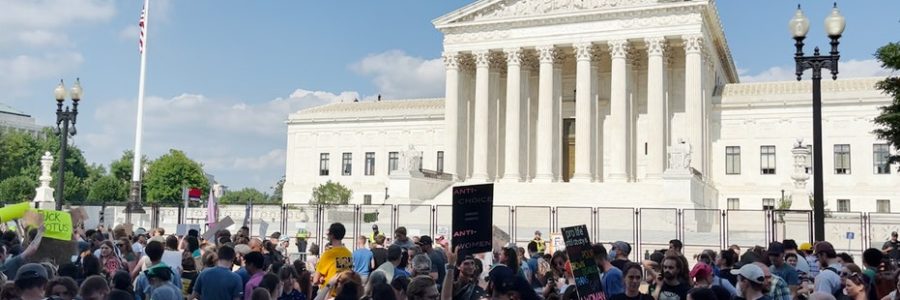
Law professors urge Biden to defy 'mistaken' rulings by 'MAGA' Supreme Court justices
President Biden should find ways to defy the rulings of “MAGA justices” for their “gravely mistaken” constitutional interpretations, law professors urged in a letter on Wednesday.
Harvard law professor Mark Tushnet and San Francisco State University political scientist Aaron Belkin penned “An Open Letter to the Biden Administration on Popular Constitutionalism” to respond to what Biden has called “not a normal court” following high-profile cases.
“We urge President Biden to restrain MAGA justices immediately by announcing that if and when they issue rulings that are based on gravely mistaken interpretations of the Constitution that undermine our most fundamental commitments, the Administration will be guided by its own constitutional interpretations,” they wrote.
The letter continued, “We have worked diligently over the past five years to advocate Supreme Court expansion as a necessary strategy for restoring democracy. Although we continue to support expansion, the threat that MAGA justices pose is so extreme that reforms that do not require Congressional approval are needed at this time, and advocates and experts should encourage President Biden to take immediate action to limit the damage.”
WHY MEDIA, LIBERALS ARE ATTACKING HIGH COURT’S LEGITIMACY AFTER LATEST RULINGS
Tushnet and Belkin cited a solution known as “popular constitutionalism” claiming “that courts do not exercise exclusive authority over constitutional meaning.” They theorized that Biden could explain how the Supreme Court’s decisions are “egregiously wrong” and offer an alternative constitutional interpretation, particular if the ruling poses a “grave threat.”
“In this particular historical moment, MAGA justices pose a grave threat to our most fundamental commitments because they rule consistently to undermine democracy and to curtail fundamental rights, and because many of their rulings are based on misleading and untrue claims,” they warned.
George Washington University law professor and legal expert Jonathan Turley penned an op-ed for The Hill on Saturday that warned about this interpretation of the constitution.
“What is most striking about these professors is how they continue to claim they are defenders of democracy, yet seek to use unilateral executive authority to defy the courts and, in cases like the tuition forgiveness and affirmative action, the majority of the public. They remain the privileged elite of academia, declaring their values as transcending both constitutional and democratic processes,” Turley wrote.
He added, “In other words, they are calling for Biden to declare himself the final arbiter of what the Constitution means and to exercise unilateral executive power without congressional approval. He is to become a government unto himself.”
In 2018, Tushnet and Belkin took part in the “1.20.21 Project,” an effort to counter “Republican obstruction, theft and procedural abuse” in the Supreme Court following the confirmation of Brett Kavanaugh. The project predominantly focused on expanding the size of all the nation’s federal courts and packing them with liberal judges.
Reporters previously pushed the Biden administration to ignore Supreme Court decisions based on its lack of legitimacy back in 2022.
CLICK HERE TO GET THE FOX NEWS APP
“The court famously has no enforcement authority. Its authority is based in acceptance of the court’s legitimacy. But it can’t do whatever the hell it wants however it wants and expect deference. [E]xecutive ought to brush off the court’s junta-like attempts to rule by edict,” former Niskanen Center Vice President for Research Will Wilkinson tweeted.

